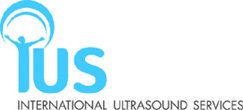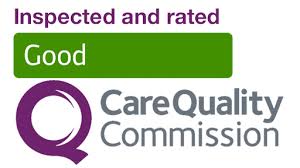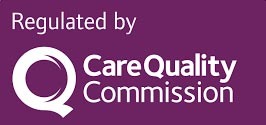Cancer remains one of the leading causes of death worldwide, but advances in medical technology have significantly improved early detection and treatment. Screening tests are essential in identifying cancer at its earliest stages, often before symptoms appear, which can drastically improve the prognosis for patients. While a range of screening tools exists, ultrasound has emerged as a versatile and non-invasive option, particularly in private healthcare settings where faster results and personalized care are prioritized.
Ultrasound plays an important role in cancer screening, complementing other screening tests like mammograms and cervical cancer screening.

The Role of Ultrasound in Cancer Screening
Ultrasound is a well-established imaging tool, frequently used in medical diagnostics due to its non-invasive nature and the absence of ionizing radiation. Unlike other imaging modalities such as X-rays or CT scans, ultrasound uses high-frequency sound waves to create real-time images of the body’s internal structures. This makes it an ideal tool for detecting abnormalities in soft tissues, including organs like the liver, kidneys, and reproductive organs.
Ultrasound for Breast Cancer Screening
Breast cancer is one of the most common cancers in women, and early detection is crucial for successful treatment. While mammography remains the gold standard for breast cancer screening, ultrasound plays an important complementary role. It is especially useful for women with dense breast tissue, where mammograms might miss small tumors. Dense breast tissue appears white on a mammogram, similar to tumors, making detection more challenging.
A study published in Radiology found that adding ultrasound to mammography in women with dense breasts increased the detection rate of invasive cancers that mammography alone might miss. Moreover, ultrasound is often the first choice for evaluating palpable lumps, particularly in younger women, and can help distinguish between benign cysts and solid masses that may require further investigation.
Ultrasound in Ovarian and Endometrial Cancer Detection
Ovarian cancer is notorious for being difficult to detect in its early stages because symptoms often do not appear until the cancer has spread. Transvaginal ultrasound (TVUS) is one of the most common methods for screening women at high risk for ovarian cancer, especially those with a family history of the disease or known genetic mutations like BRCA1 and BRCA2. TVUS allows clinicians to visualize the ovaries and the surrounding pelvic structures, making it possible to detect abnormal growths or cysts.
According to the American Cancer Society, while TVUS can detect masses in the ovaries, it cannot always determine whether those masses are cancerous. However, when combined with blood tests that measure cancer markers (such as CA-125), TVUS becomes a valuable tool in ovarian cancer screening, particularly for high-risk women.
In the case of endometrial cancer, which affects the lining of the uterus, TVUS is again a key screening tool, especially for women experiencing abnormal uterine bleeding. Research published in The Journal of Clinical Oncology highlighted the effectiveness of TVUS in detecting endometrial abnormalities in postmenopausal women. Ultrasound can measure the thickness of the endometrial lining, helping to identify patients who may need further diagnostic procedures like a biopsy.
Ultrasound for Thyroid Cancer Screening
Thyroid nodules are common, especially in older adults, and the majority are benign. However, in some cases, they can develop into thyroid cancer. Ultrasound is the preferred imaging method for evaluating thyroid nodules, as it provides detailed images of the thyroid gland and helps guide fine-needle aspiration biopsies to determine whether a nodule is cancerous.
According to a study in The American Journal of Roentgenology, ultrasound can identify characteristics of thyroid nodules that are associated with malignancy, such as irregular borders, microcalcifications, and increased blood flow. This makes it an essential tool for early detection and monitoring of thyroid cancer.
Other Cancer Screening Tests
While ultrasound is an invaluable tool for many types of cancer, it is often used in conjunction with other screening methods to provide a more comprehensive picture of a patient’s health. Below, we explore some of the most commonly used cancer screening tests.
Cervical Cancer Screening
Cervical cancer screening has been one of the most successful cancer prevention measures, largely due to the widespread use of the Pap smear and, more recently, human papillomavirus (HPV) testing. A Pap smear involves collecting cells from the cervix to detect precancerous or cancerous changes. HPV testing checks for the presence of the virus that causes most cases of cervical cancer.
A landmark study published in The Lancet showed that regular cervical screening reduced the incidence of cervical cancer by 60-80% in women who were regularly screened. The introduction of HPV testing has further enhanced this success, as it allows for the identification of high-risk HPV strains before they cause cellular changes.
Women are generally recommended to begin cervical cancer screening at the age of 25, with a combination of Pap smears and HPV testing performed every three to five years, depending on age and previous test results.
Breast Cancer Screening: Mammograms
Mammograms remain the most effective tool for early detection of breast cancer in women over the age of 50. A mammogram uses low-dose X-rays to create detailed images of the breast tissue, allowing for the detection of tumors that may be too small to feel. Regular mammograms have been shown to reduce the risk of dying from breast cancer, especially in women over the age of 40.
While mammography is highly effective, it can sometimes produce false positives, leading to unnecessary biopsies or additional imaging. This is where ultrasound can play a crucial role. For women with dense breasts, a condition that affects about 50% of women, ultrasound can help detect tumors that mammograms might miss.
A large-scale study published in JAMA found that women with dense breast tissue who received both mammograms and ultrasounds had a higher rate of cancer detection compared to those who only received mammograms. This demonstrates the importance of using ultrasound as a complementary tool in breast cancer screening.
Colorectal Cancer Screening
Colorectal cancer is one of the most preventable forms of cancer, yet it remains one of the leading causes of cancer deaths worldwide. Screening options for colorectal cancer include colonoscopy, stool-based tests like the Fecal Immunochemical Test (FIT), and sigmoidoscopy.
Colonoscopy is considered the most accurate screening test for colorectal cancer, as it allows doctors to examine the entire colon and rectum and remove polyps before they become cancerous. Research published in The New England Journal of Medicine demonstrated that regular colonoscopy screenings could reduce colorectal cancer deaths by up to 68%.
The FIT is a non-invasive test that detects hidden blood in the stool, which can be an early sign of colorectal cancer. While not as comprehensive as a colonoscopy, the FIT is a good option for individuals who may not be able to undergo more invasive procedures.
Prostate Cancer Screening
Prostate cancer screening typically involves two main tests: the prostate-specific antigen (PSA) blood test and digital rectal examination (DRE). The PSA test measures the level of PSA in the blood, with elevated levels potentially indicating the presence of prostate cancer.
Ultrasound can also play a role in prostate cancer screening, particularly in guiding biopsies. Transrectal ultrasound (TRUS) is often used to help visualize the prostate gland and guide needles during a biopsy to ensure that samples are taken from the appropriate areas.
A study published in The Journal of Urology highlighted the effectiveness of TRUS in improving the accuracy of prostate biopsies, particularly when combined with MRI imaging. This combination of techniques helps improve the detection of clinically significant prostate cancer.
Lung Cancer Screening
Lung cancer is the leading cause of cancer death worldwide, but early detection can significantly improve survival rates. Low-dose computed tomography (LDCT) is the most effective screening method for lung cancer, particularly for individuals at high risk due to smoking history.
According to a study in The New England Journal of Medicine, annual LDCT scans reduced lung cancer deaths by 20% in high-risk individuals compared to standard chest X-rays. While ultrasound is not typically used for lung cancer screening, it can be used to guide biopsies or monitor the spread of cancer to nearby organs.
When to Consider Cancer Screening
Screening is most effective when tailored to an individual’s specific risk factors. These factors can include age, family history, lifestyle, and genetics. For instance, individuals with a family history of breast or ovarian cancer, or those who have inherited mutations in genes like BRCA1 or BRCA2, should begin screening earlier and more frequently than the general population.
For cervical cancer, screening should begin at age 25, and women with a history of HPV infections may need more frequent testing. Breast cancer screening with mammograms is typically recommended every two years for women aged 50 to 74, but women with dense breasts or a family history may require annual mammograms and supplementary ultrasound.
For colorectal cancer, individuals over the age of 50 should undergo regular screenings, with colonoscopy recommended every 10 years. However, those with a family history of colorectal cancer or polyps may need to begin screening earlier.
The Benefits of Private Cancer Screening at IUS London
Private cancer screening offers several advantages, particularly when it comes to ultrasound services. At IUS London, patients can access high-quality ultrasound imaging without the long wait times often associated with public healthcare systems. This allows for faster diagnosis and, if necessary, quicker access to treatment.
Private ultrasound services also offer a level of personalization that is difficult to achieve in standard healthcare settings. For instance, patients can schedule screenings at their convenience, receive same-day results, and have access to follow-up consultations without delay.

This is particularly important for patients who require more frequent monitoring due to their personal or family history of
cancer or other risk factors. Private ultrasound screening provides an added layer of reassurance, as patients can take control of their health and seek early detection in a comfortable, supportive environment.
In the context of breast cancer, for example, women with dense breast tissue may opt for annual ultrasound screenings alongside mammograms. This dual approach ensures that any potential tumors, which might be hidden in dense tissue, are detected early. Similarly, women at high risk for ovarian cancer can benefit from regular transvaginal ultrasounds to monitor for any abnormal growths.
The expertise and advanced technology offered by private providers like IUS London ensure that patients receive high-quality, accurate imaging. Ultrasound technicians and radiologists work closely together to interpret the images and provide comprehensive reports, helping patients and their doctors make informed decisions about their health. This can be especially important for patients who want a second opinion or who prefer the discretion and speed of a private healthcare setting.
Tailoring Screening to Individual Needs
One of the key advantages of private cancer screening is the ability to tailor the screening process to the individual’s specific needs. In public healthcare systems, cancer screening protocols are often standardized, with set intervals for certain tests based on age and general risk factors. While this approach works well for the majority of the population, it may not always be sufficient for individuals with higher risk factors or those who require more personalized care.
At IUS London, screening schedules can be customized based on a patient’s personal and family medical history, as well as any genetic predispositions they may have. For example, a woman with a family history of breast or ovarian cancer may begin screening earlier than the general population, combining mammograms, ultrasounds, and even genetic testing to provide a more thorough assessment of her risk.
Men with a family history of prostate cancer can benefit from more frequent PSA testing and ultrasounds, ensuring that any potential issues are caught at the earliest stage. This proactive approach can be lifesaving, as many cancers, when detected early, can be treated more effectively.
Private ultrasound screenings also offer flexibility in terms of scheduling and frequency. Patients can choose to undergo screening more often than the standard recommendations, giving them peace of mind, particularly if they are anxious about their health or have symptoms they are concerned about.
Advances in Ultrasound Technology
The field of medical imaging has seen significant advancements over the past decade, and ultrasound technology is no exception. High-resolution ultrasound machines now provide incredibly detailed images of internal organs, helping radiologists detect even the smallest abnormalities. Doppler ultrasound, for example, allows for the visualization of blood flow, which can be particularly useful in identifying tumors that are growing rapidly and forming new blood vessels (a process known as angiogenesis).
3D and 4D ultrasounds also offer enhanced imaging capabilities, providing three-dimensional images that can be rotated and viewed from different angles. This can be especially helpful in breast and thyroid cancer screenings, where visualizing the exact size and shape of a tumor is crucial for diagnosis and treatment planning. These advancements not only improve the accuracy of cancer detection but also make the process more efficient, reducing the need for follow-up scans and unnecessary biopsies.
Research published in Ultrasound in Medicine & Biology highlighted the benefits of using 3D ultrasound in breast cancer detection, showing that it improved lesion characterization and allowed for better differentiation between benign and malignant masses. Similarly, advances in elastography, a specialized form of ultrasound, enable radiologists to measure tissue stiffness, which is often an indicator of malignancy. Elastography has proven particularly useful in liver cancer screening, helping to identify tumors that may otherwise go undetected.
At IUS London, patients can take advantage of these cutting-edge technologies, ensuring they receive the most accurate and up-to-date care. The use of advanced ultrasound techniques not only aids in early cancer detection but also reduces patient anxiety by providing clear, detailed images and immediate results.
The Importance of Regular Screening
Cancer screening is not a one-time event; it is a regular part of maintaining good health, particularly as individuals age or develop new risk factors. Many cancers, such as breast, cervical, and colorectal, have well-established screening programs with guidelines on when and how often individuals should be tested. However, it is essential to recognize that each person's risk of cancer is unique, and screening recommendations should be adjusted accordingly.
For example, the risk of colorectal cancer increases significantly after the age of 50, prompting regular colonoscopies every 10 years. But for individuals with a family history of colorectal cancer or certain genetic conditions, such as Lynch syndrome, screening may begin much earlier and occur more frequently. Similarly, while cervical cancer screening typically begins at age 25 and is recommended every three to five years, women who are immunocompromised or have a history of abnormal Pap smears may require more frequent testing.
The same applies to breast cancer, where most women are advised to begin mammograms at age 50, but those with a family history of the disease or known genetic mutations, such as BRCA1 or BRCA2, may start much earlier, with supplementary ultrasounds and even MRIs to provide a more comprehensive screening strategy.
Regular screening is particularly important for high-risk individuals, as cancer often develops gradually over time. Detecting cancer at its earliest stages, when it is most treatable, can dramatically improve outcomes. Screening also plays a role in identifying pre-cancerous changes, such as polyps in the colon or dysplasia in the cervix, allowing for early intervention before cancer has a chance to develop.
Making Informed Choices About Cancer Screening
Choosing to undergo cancer screening, and deciding which tests are appropriate, can be a daunting process. There is often a balance to strike between screening too frequently, which can lead to unnecessary procedures, and not screening enough, which could result in missed opportunities for early detection. Private healthcare services, such as IUS London, help simplify this process by offering expert guidance and personalized screening plans.
Patients are encouraged to discuss their individual risk factors with their healthcare provider, including their family history, lifestyle factors, and any previous health concerns. With this information, a tailored screening plan can be developed that maximizes the likelihood of early detection without subjecting the patient to unnecessary tests or anxiety.
The personalized approach offered by private providers like IUS London also means that patients can take an active role in their healthcare. Rather than adhering to generalized screening guidelines, they have the flexibility to adjust their screening schedule based on their unique needs and preferences. This empowers patients to make informed choices about their health and ensures they receive the best possible care.
Conclusion
Cancer screening is a powerful tool in the fight against cancer, and ultrasound plays a pivotal role in this process, offering a safe, non-invasive way to detect a variety of cancers at their earliest stages. By choosing private ultrasound services, patients benefit from faster results, personalized care, and access to the latest advancements in imaging technology.
Regular cancer screening, tailored to individual risk factors, significantly improves the chances of detecting cancer early, when treatment is most effective. Whether it's through ultrasound, mammograms, colonoscopies, or other screening methods, staying proactive about cancer screening can save lives.
At IUS London, patients receive high-quality care with the added convenience and privacy of a private healthcare setting, ensuring that they can prioritize their health with confidence.







